Italy, 1986
The Italian government proclaims Shri Mataji as the Personality of the Year.
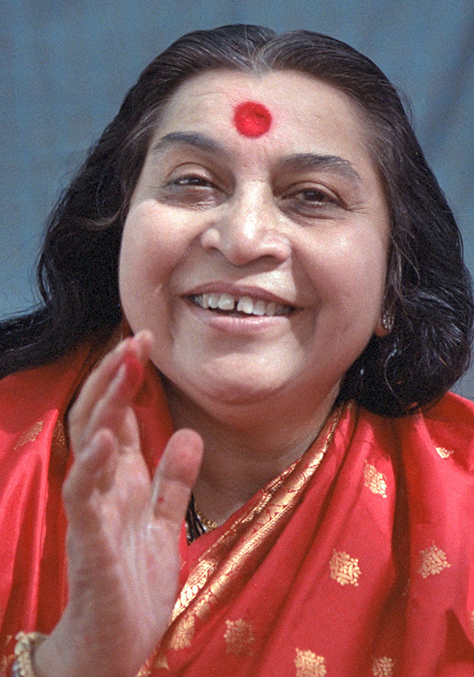
Shri Mataji Nirmala Devi discovered a unique method of meditation called "Sahaja Yoga" which allows the achievement of inner enlightenment and reveals the true potential of humanity. Shri Mataji devoted her entire life to the development and dissemination of this method, and today hundreds of thousands of people around the world practice Sahaja Yoga.
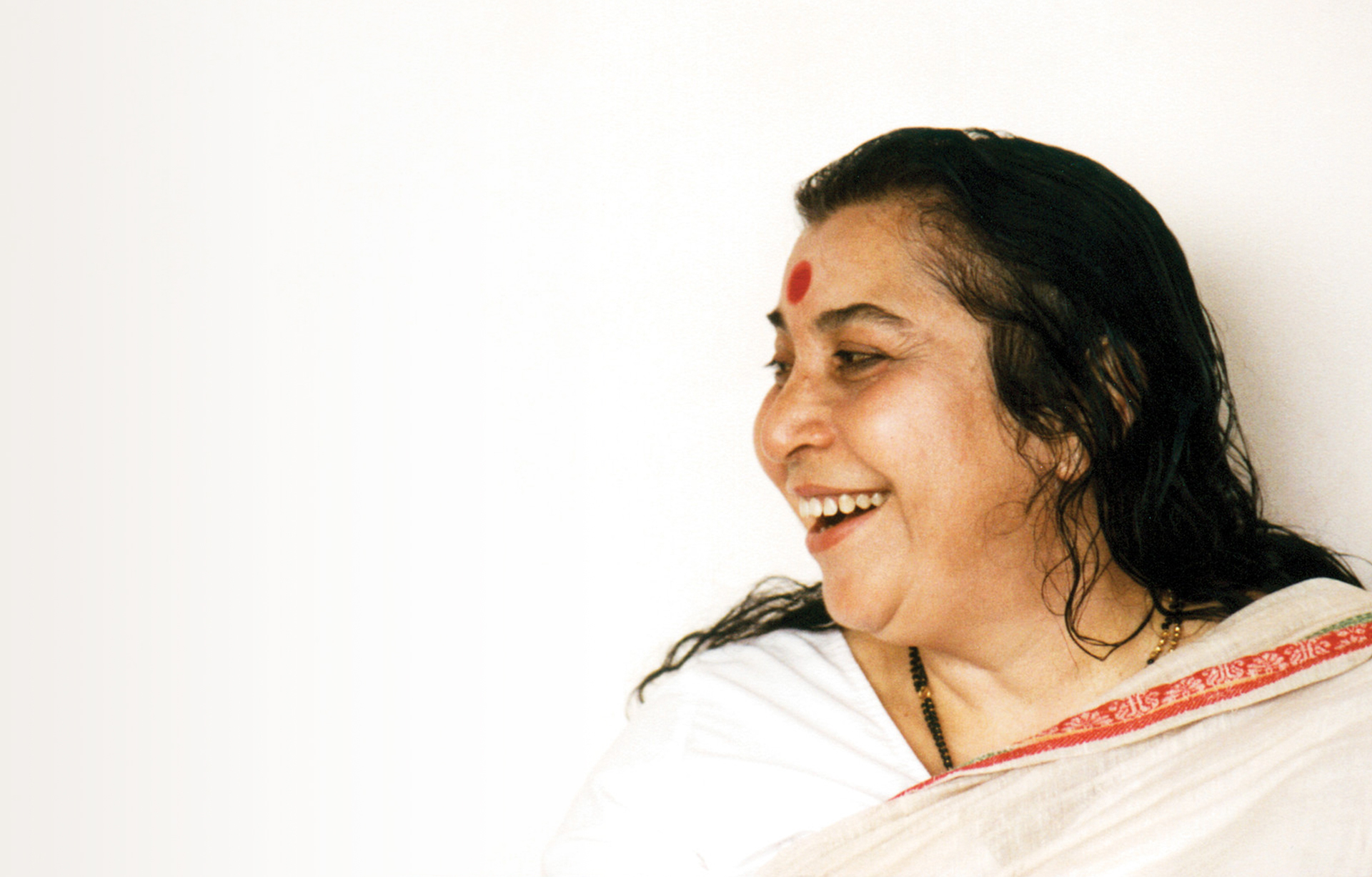
Shri Mataji showed that within each person there is a motherly spiritual energy called Kundalini, the awakening of which leads to a state of spontaneous meditation. Unlike many ancient teachers who were only able to share this experience with a few individuals, Shri Mataji could raise the Kundalini in thousands of people, something previously considered impossible.
The opportunity to awaken this inner spiritual energy distinguishes Sahaja Yoga from other methods of meditation. It is the extraordinary living experience that allows us to achieve a state of complete peace and satisfaction, touch the very essence of our beings, and uncover our very best qualities.
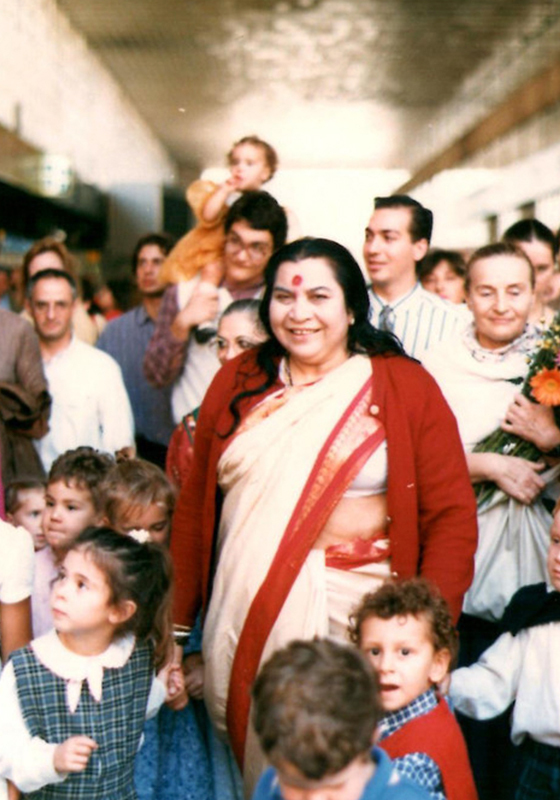
Shri Mataji not only founded and spread the method of Sahaja Yoga far across the world but also created many non-profit organizations in various fields of public life.
From a centre for destitute women and orphans, international schools with comprehensive and balanced curiculum, health centres using the methods of Sahaja Yoga to academies teaching classical arts - the list of Shri Mataji’s achievements is striking in its diversity.
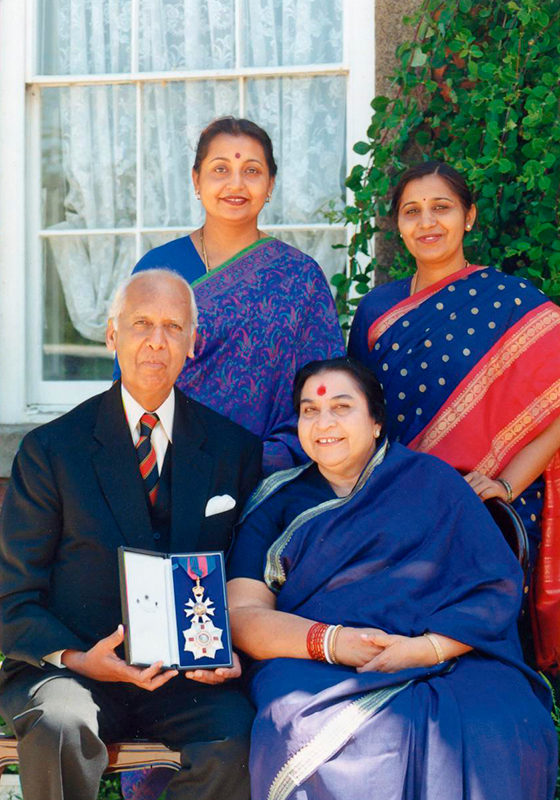
Since birth Shri Mataji was surrounded by exceptional people. Her parents were scholars and political activists who played an important role in the liberation movement of India. They sought the independence of their country together with Mahatma Gandhi, who noticed the extraordinary potential of the young Shri Mataji and consulted her on spiritual matters.
Throughout her life, Shri Mataji was often in the circles of prominent political and public figures. Her husband, Sir Chandrika Prasad Srivastava, started as a young officer in the Indian Civil Service and rose through the ranks becoming Private Secretary to the Prime Minister of India, Lal Bahadur Shastri. He was later appointed Secretary-General of the United Nations International Maritime Organisation in London and served in this post for four successive terms. His relentless dedication to public service and exceptional achievements awarded him a knighthood by Queen Elizabeth II. He was the first Indian to receive such honour after India gained independence.
Shri Mataji was born as Nirmala Salve on the 21st of March 1923, in Chindwara, India. Her family descended from the royal Shalivahana dynasty, and she was raised Christian following her forefathers’ decision to convert from Hinduism, in light of the cruel treatment of widowed women. Shri Mataji's father was a lawyer and scientist, fluent in 14 languages and famous for translating the Qur'an into Hindi, and her mother was the first woman in India to receive an honors degree in mathematics.
Shri Mataji's parents also actively participated in the struggle for India's independence from British occupation and were both jailed several times for their involvement. As a child, Shri Mataji often visited the ashram of Mahatma Gandhi, discussing with him the means to bring about social and spiritual liberation. In 1942, Shri Mataji, as a teenager, was detained and tortured by British soldiers for participating in the liberation movement. This was, however, considered a necessary sacrifice - so strong was the conviction that the internal liberation of people could come only after the country's liberation from foreign rule.
In 1947, Shri Mataji married a young political figure, Chandrika Prasad, later known as Sir CP, with whom she had two daughters. Shri Mataji was a housewife and raised the daughters as Sir CP helped develop the newly liberated country, moving up the political ladder and serving in various posts in the state hierarchy. However, Shri Mataji always remembered her true destiny - the search of a method for the spiritual enlightenment of humanity.
When are you finally going to start your spiritual work? Now you are free, and you have to start.
Mahatma Gandhiin a conversation with Shri Mataji, the day before he was assasinated
Shri Mataji always knew that the meaning of her life was to find a way to teach the truth of meditation to as many people as possible. She knew that only through the inner transformation of every person can the whole of society become harmonious.
She also saw how many people try to learn the truth, and how many so-called "gurus" use this pure impulse for their enrichment. After attending a lecture of one of such pseudo-teachers, she saw how he manipulated people and was disgusted by this attitude. Shri Mataji spent the whole of that night on a beach in Nargol, West India, contemplating this dilemma. She knew that for people to reach a higher awareness of themselves they must be able to go beyond their minds and be connected to their subtle being.
Deep in meditation, she felt her Kundalini rise within her, moving along her spine through all her chakras until it pierced the final chakra, the Sahasrara, at the top of her head. At that moment she was brought into a state of total serenity and knew that this was the answer to what so many were searching for. Thus on the 5th of May 1970, she discovered the method to achieve the state of meditation, which she later called "Sahaja Yoga," which in Sanskrit means "spontaneous union."
“I saw the whole thing open and a big torrential rain of breeze started flowing through my head all over, as if, and I felt 'I am lost now, I am no more there. It's only the grace is there, that is there'. I saw it completely happening to me."
Shri Mataji Nirmala DeviVienna, 1986
Soon Shri Mataji began to teach this new method to a few close individuals in India, awakening their Kundalinis to give them ‘Self-Realisation’. This was a difficult process; since ancient times, through years of dedication and labour, only the most worthy yogis had managed to achieve such awakening.
However, the presence of Shri Mataji and her patient work on people seemed to be the catalyst for this process. All of her students reached this state of inner freedom and lightness, and also felt a cool breeze on the palms and above the head. It is because of the effect of Shri Mataji's presence and her tirelessly loving and selfless work on people that her students gave her the name Shri Mataji, which literally means "respected holy mother.”
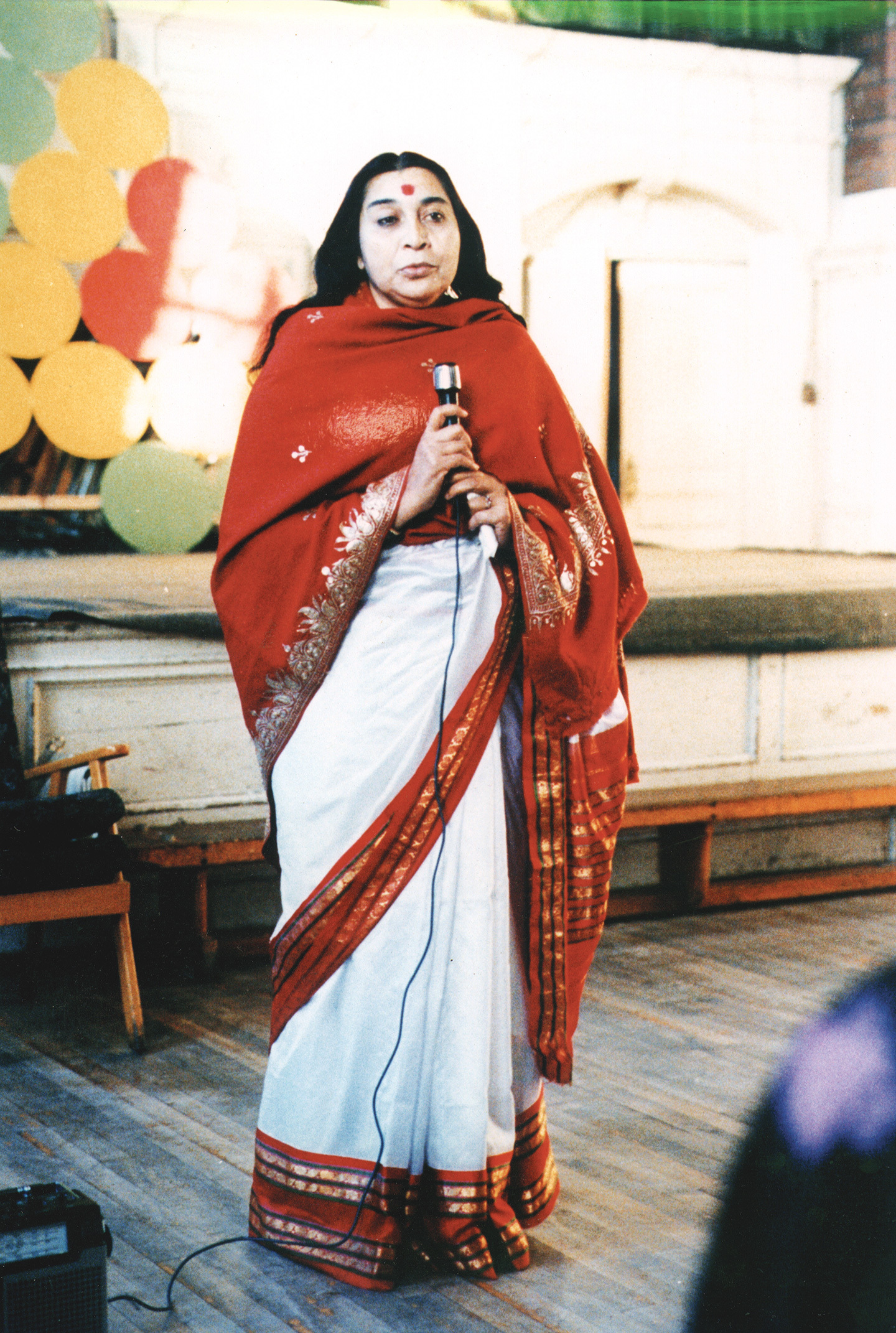
The method of meditation discovered by Shri Mataji began to spread around the world after she and her family moved to London, starting with her first students whom Shri Mataji sheltered in her home in London. She gave them their Self Realisation, taught them the basics of meditation, and gradually rebuilt their shattered subtle bodies.
Before long she was giving television and radio interviews, and holding lectures in public halls across the country. Afterwards, she would always spend a lot of time giving individual attention to the audience and patiently answering their questions. Shri Mataji never charged any money for these lectures, nor the experience of Self Realisation, insisting that it is the birthright of every individual.
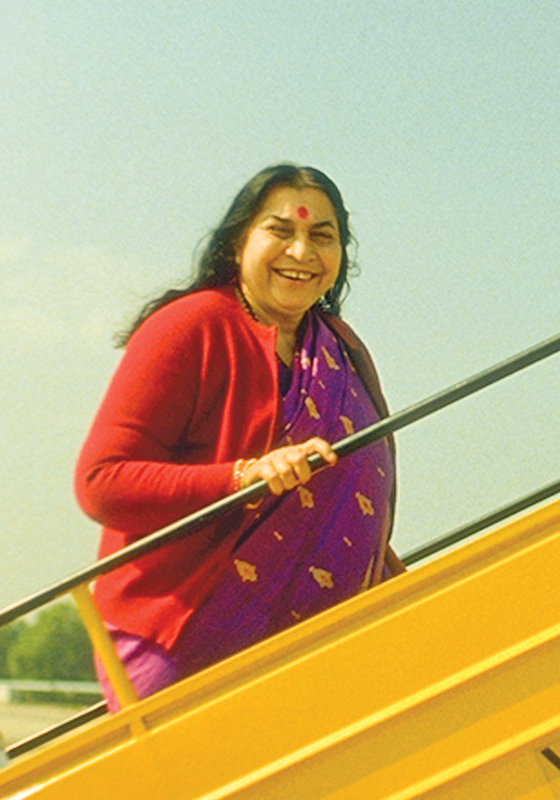
From the 1980s onwards, Shri Mataji began to travel the world to bring her knowledge to all who wished to receive it. Starting with Europe, North America, and Australia, and later moving on to South America, Asia, and the Pacific region, she tirelessly taught Sahaja Yoga to all who were interested.
In 1990 alone, Shri Mataji attended more than 200 official events in 26 countries and had many more informal meetings in between. Whether it was a speech in the main hall of a capital city or an informal conversation in a villager’s home, every talk and experience was of equal importance to her.
Her vision was global, and, traveling and meeting people around the world, she sought to realise it. This vision was to change the world for the better, giving each person, regardless of race, religion, or circumstance, a method by which they could achieve inner transformation and become their true selves.
Shri Mataji, in her lectures and conversations, paid attention to many aspects of a person's life, saying that the inner state enlightened by the practice of meditation must find an outward manifestation in all spheres of human life.
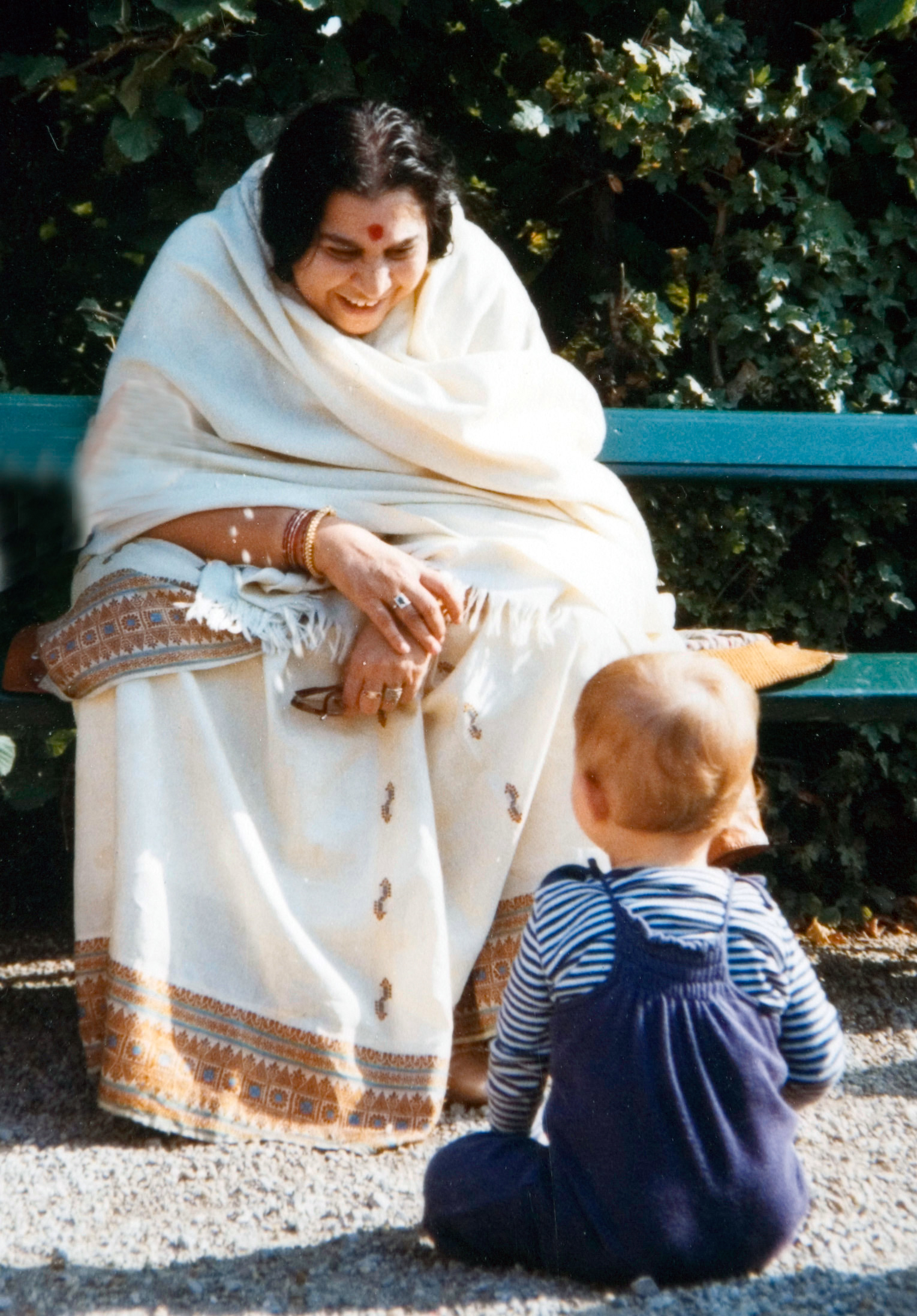
Shri Mataji paid special attention to the creation of a solid foundation for the development of the individual, thereby emphasising the importance of preschool education. She noted that education should not only ensure the intellectual and emotional development of children but also lay the foundations of morality and spirituality.
To form the worthy behaviour of children and a sense of self-respect, Shri Mataji attached great importance to discipline based on love and respect. "It is our duty to see that our children are growing into great people. Greater than ourselves," said Shri Mataji. "They must take care of this world."
Realising her vision in practice, Shri Mataji created an education system based on Sahaja Yoga. The training involves mastering a complex curriculum and regular meditation classes. Meditation helps students improve their attention and motivation, and develops a sense of self-confidence, allowing them to understand themselves and establish harmony within.
Young people from different countries successfully receive a decent education and build up harmonious relationships based on empathy and collectivity, in schools organised by Shri Mataji in India, Italy, Canada, Austria, the US, the Czech Republic, and Australia.
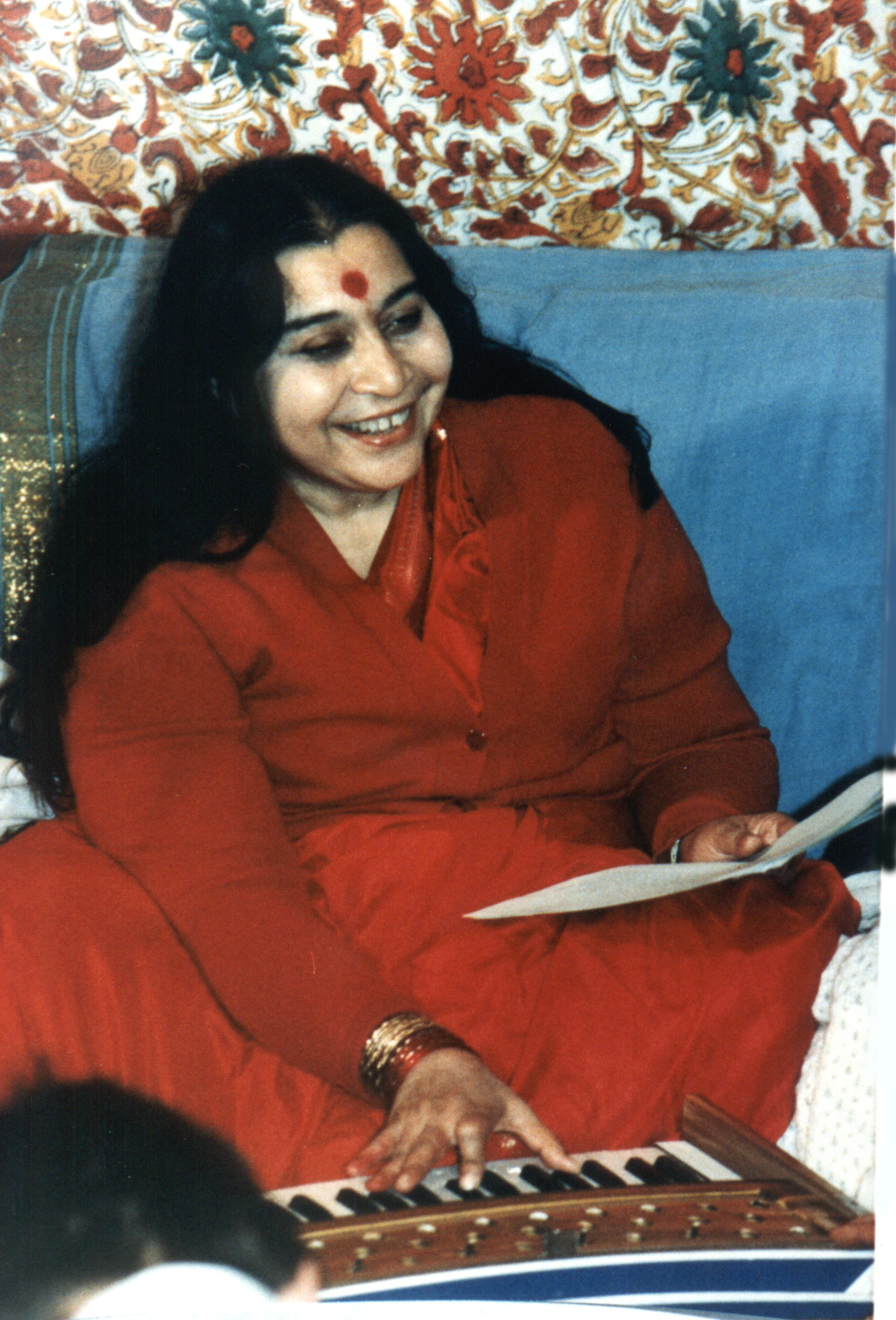
Throughout her life, Shri Mataji devoted much time and energy to the development of the arts. She saw art not only as one of the main means of self-expression but also as a way of supporting world cultures. In particular, Shri Mataji sought to preserve the rich artistic traditions of India, rooted in antiquity, and she actively promoted the dissemination of the cultural heritage of India around the world.
In 2003, Shri Mataji together with her brother founded an Academy of Arts in Maharashtra (India). Students from different countries come to the academy to study Indian classical music, dance, and painting in a quiet Indian village. Shri Mataji personally supervised the architectural project of the Academy building, as well as the creation of other institutions with humanitarian goals. One such project is the Nirmala Prem Center in Delhi (India) for orphans.
Over the years, Shri Mataji has patronised some of the most famous representatives of classical Indian music and dance, inviting them to perform at various concerts and programs. Those performers who have performed in her presence describe this experience as a turning point in their creative path. Many noted that Shri Mataji's strong creative energy greatly inspired them to deepen the mastery of their skill and to realise their full potential.
Shri Mataji's efforts in the development of the arts included active support of theatre. She inspired a group of talented actors to unite and create the "Theatre of Eternal Values." Formed in 1996 in Ghent, Belgium, TEV continues to tour around the world, performing original productions that touch on the themes of spirituality, self-development, and awareness, by writers such as William Blake, Shakespeare, and Leo Tolstoy.
Shri Mataji studied medicine for several years until the political events connected with the independence movement of India forced her to leave school. Being brought up in a tradition that recognised the connection between spirituality and health, Shri Mataji devoted herself to studying meditation and observing how it affects the mind and physical body of a person.
During the study of meditation, Shri Mataji learned about the subtle energy system of the chakras (nerve plexuses) and channels (sympathetic and parasympathetic nervous systems). This subtle system determines our physical, mental and emotional state. Shri Mataji also knew of a nourishing female inner energy, known as ‘Kundalini’ in the ancient Indian writings. She studied human behaviour and its influence on this energy and subtle system. She saw how unbalanced behaviour could lead to physical, mental and emotional extremes, which in turn leads to a deterioration in health, but that the Kundalini can restore balance .
"This Kundalini, when She passes through these six centers, She enlightens those centers, nourishes those centers and integrates them - so in totality you are all right. It's not like, that one part of the body is treated, another part is neglected - in totality, in the whole balance. And She puts you in the central path of balance."
Shri Mataji emphasised that although Sahaja Yoga improves health, its goal is not to cure but to awaken the kundalini and give people an understanding of spirituality through self-realisation.
Dr. Ramesh Manocha, general practitioner and researcher at the Department of Natural Therapy of the Royal Hospital for Women in Sydney, Australia, cites convincing results of the positive influence of Sahaja Yoga Meditation in the treatment and prevention of various disorders, including hypertension, asthma, and ADD. According to Dr. Manocha, the silence of the mind, established during meditation, is associated with a unique character of physiological activity. He notes that among the many methods of meditation and relaxation, meditation by the method of Sahaja Yoga has proved effective in terms of therapeutic treatment.
In 1996, Shri Mataji founded the Sahaja Yoga International Research Wellness Center in Belapur, near Mumbai, India. The clinic is now accepting patients from all over the world. Diagnosis and treatment involve the use of Sahaja Yoga methods in addition to Ayurvedic medical practices. Compared with traditional Western medicine, the use of meditation in treatment leads to a significant stabilisation of blood pressure, reduction in stress levels, and strengthening of the immune system, and studies of further effects are ongoing.
Throughout the 41 years Shri Mataji spent spreading Sahaja Yoga, she received numerous awards, nominations, and accolades from state leaders and notable institutions around the world.
“A source of hope for humanity”
Claes Nobel, Grand-Nephew of Alfred NobelPublic speech at the Royal Albert Hall, London, 1997
In 1996, she was nominated for the Nobel Peace Prize, and in 1997 she received personal recognition from Claes Nobel, the grand-nephew of Alfred Nobel. In a public speech at the Royal Albert Hall in London, Nobel spoke with a deep respect for the life and work of Shri Mataji, describing Sahaja Yoga as 'a reference point for determining right from wrong.'
On bestowing honorary membership of the Petrovskaya Academy of Arts and Science in St Petersburg, a distinction only ever received by 12 people, including Einstein, the institution praised Shri Mataji with the words ‘You are even higher than science.’ It is this profound respect and admiration from representatives of all sectors of society which highlights the value of Shri Mataji’s teachings.
Some notable moments in the life of Shri Mataji:
The Italian government proclaims Shri Mataji as the Personality of the Year.
Succeeding Shri Mataji’s meeting with the Minister for Health of the USSR, Sahaja Yoga receives full government support, including funding of scientific research.
Elected as an honorary member of the Petrovsky Academy of Arts and Science. Shri Mataji opens the International Conference on Medicine and Self-knowledge, which subsequently becomes an annual conference.
Shri Mataji is welcomed at the airport by the Mayor of Brasilia, who presents her with the key to the city and sponsors all of her programs.
26th September is declared ‘Shri Mataji Nirmala Devi Day’. Shri Mataji is offered a police escort for a parade in her honour.
On behalf of the people of Canada, the Premier of the Province of British Columbia, Mr Mike Harcourt, extends a letter of welcome to Shri Mataji.
Granted an Honorary Doctorate in Cognitive Science by Prof D Drime, head of the Ecological University Bucharest.
The Chinese government invites Shri Mataji to be an official guest speaker at the 4th UN Conference on Women.
Shri Mataji addresses the ‘World Philosophers Meet ‘96 - A Parliament of Science, Religion and Philosophy’, where she is celebrated for the establishment of Sahaja Yoga.
Honorarium read into the Congressional Record by Congressman Eliot Engle, who commends Shri Mataji for her dedicated and tireless work for humanity.
The Italian government awards Shri Mataji with honorary citizenship, succeeded by the presentation of the foundation stone for the ‘Shri Mataji Nirmala Devi World Foundation of Sahaja Yoga’ in Cabella Ligure.
Shri Mataji established kindergartens and schools, medical centers and homes for the disadvantaged, art academies and social projects, but her legacy is something far greater than all of these. No monument or non-governmental organisation can demonstrate the true legacy of Shri Mataji Nirmala Devi, it is above all these things.
What Shri Mataji has given to our world is not a philosophy, doctrine or concept. It is an extraordinary transformative experience - Self-realisation. Recognition of one's spiritual essence and the power to change our world from the very root of society by starting with the individual is the true legacy of Shri Mataji's life.
"Prepare them so that they can solve their problems, that's what I should do ... You must be doctors to yourself. You must be a guru to yourself. "
Her work has led to the creation of a dynamically developing international community, bringing together practitioners of Sahaja Yoga in more than 95 countries. All of them are united by the desire for spiritual transformation and the creation of an opportunity for global change.
Shri Mataji's vision was not to create any organisations - her message is focused on the person, on the inner "I". Shri Mataji noted that only the dedication to universal spiritual values can solve the global problems of mankind. She also insisted on the freedom of the individual: In Sahaja Yoga, there are no dogmas or prescriptions, there is only the inner awareness of what is beneficial for spiritual development.
By initiating profound personal changes through the awakening of Kundalini and meditation, Shri Mataji taught people how to strive for and achieve higher goals than mere material success or power. "We must reach peace inside," she said.